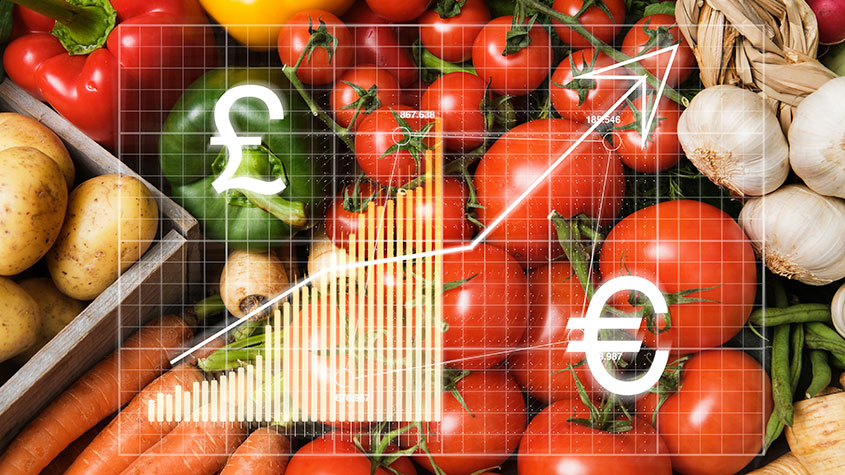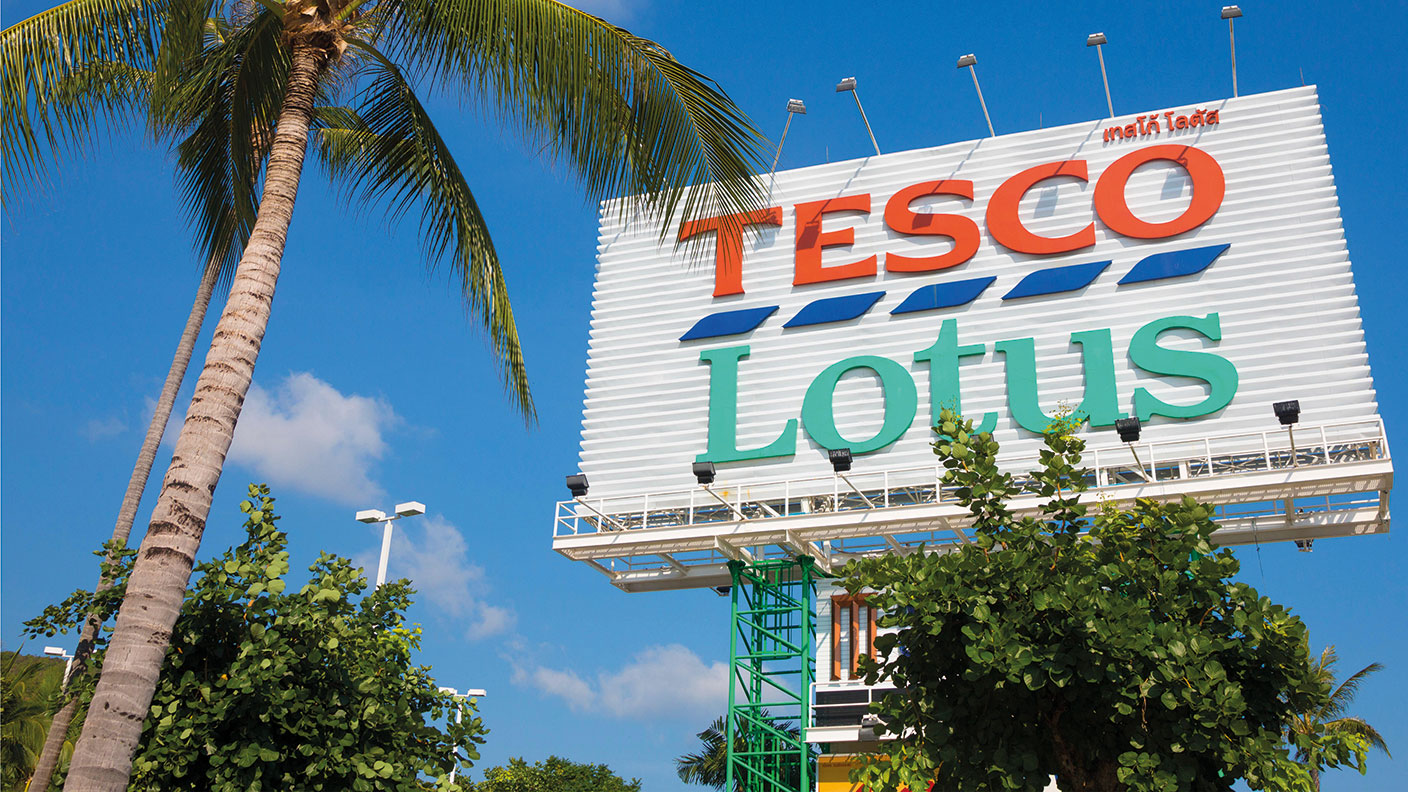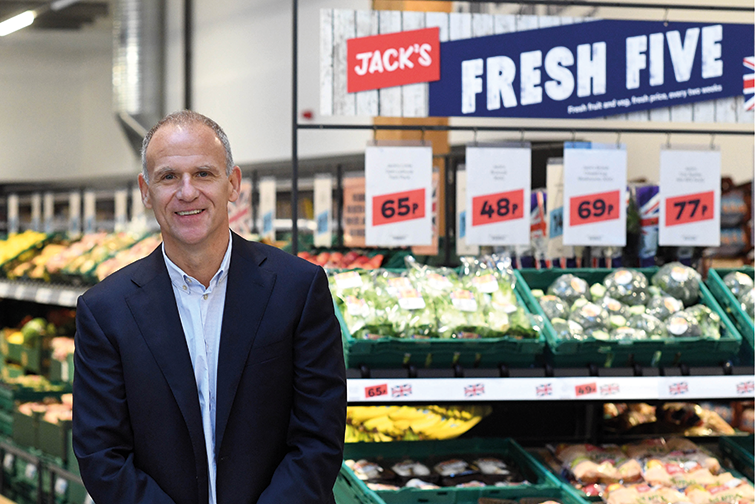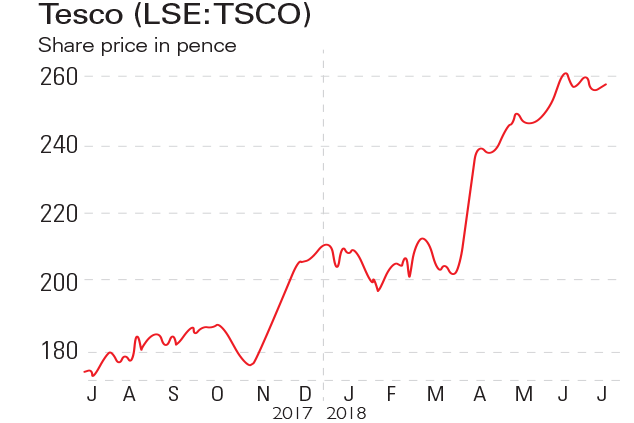Tesco looks cheap – but is now the right time to buy?
Tesco is in trouble. Sales have fallen, and it is under threat from discount supermarkets. But its shares are now very cheap. So is it time to buy, or will things just get worse? Ed Bowsher investigates.

Get the latest financial news, insights and expert analysis from our award-winning MoneyWeek team, to help you understand what really matters when it comes to your finances.
You are now subscribed
Your newsletter sign-up was successful
Want to add more newsletters?

Twice daily
MoneyWeek
Get the latest financial news, insights and expert analysis from our award-winning MoneyWeek team, to help you understand what really matters when it comes to your finances.

Four times a week
Look After My Bills
Sign up to our free money-saving newsletter, filled with the latest news and expert advice to help you find the best tips and deals for managing your bills. Start saving today!
Tesco (LSE: TSCO)is in a sorry state these days.
The supermarket chain is currently trading on a price/earnings ratio of 11. That would have seemed like an absolute steal three years ago.
But that was before the company's performance really started to go off the boil.
MoneyWeek
Subscribe to MoneyWeek today and get your first six magazine issues absolutely FREE

Sign up to Money Morning
Don't miss the latest investment and personal finances news, market analysis, plus money-saving tips with our free twice-daily newsletter
Don't miss the latest investment and personal finances news, market analysis, plus money-saving tips with our free twice-daily newsletter
This week, we've had an update on trading from the supermarket giant. So is now the time to buy, or are there still-harder times to come?
Tesco wants to have its cake and eat it
But I don't think that's going to work. I can see why Clarke doesn't want to cut margins. But if he doesn't, it merely leaves Tesco increasingly vulnerable to competition from low-price rivals.
The latest market share figures from Kantar Worldpanel show that the leading discounters Aldi and Lidl are growing fast. Aldi's market share has soared from 3% to 3.9%. Both chains are aggressively opening new stores.
Meanwhile, at the posh end of the market which Tesco has no real foothold in - Waitrose continues to grow its market share.
The rise of the discounters is a huge problem for Tesco. I don't believe that a store modernisation programme on its own is enough to deal with this challenge.
After all, Tesco launched its £1bn modernisation programme a year ago, yet it still reported a 1.5% fall in UK like-for-like sales this week. In other words, if you exclude recent store openings, UK sales are falling.
Tesco is doing some things right in the UK. It's slowing down the rate at which it is opening new hypermarkets. Amid competition from the internet, it is also trying to give people other reasons to go to its existing hypermarkets, by offering nice restaurants, yoga classes and other attractions.
The launch of Tesco's iPad knock-off, the Hudl', has also been a big success, selling 300,000 units so far. And continuing to open more high-street Express' stores is another good move like-for-like sales are rising in this part of the business.
But these positive moves aren't enough. The essential problem is that Tesco believes it can maintain its current margins whilst growing sales at the same time. That's not going to happen.
As JP Morgan Cazenove recently pointed out, UK supermarket margins are higher than in other Western European countries such as France and Spain. That can't last - as Aldi and Lidl grow, Tesco will have to accept that the UK market has changed.
To maintain sales, margins will have to fall and that will hit profits. Permanently. And if profits aren't going to rise for some time, then the current share price isn't cheap, regardless of the seemingly low p/e.
Forget the overseas branches Tesco's story is all about the UK
Back then, bulls would point out that Tesco was generating huge amounts of cash in the UK and using some of that cash to invest in promising businesses abroad especially in Asia and Eastern Europe.
It was a great idea in theory I even agreed with it at the time and it's possible that some of these foreign businesses will come good in the end. But there's no sign of that right now.
Like-for-like sales in Europe are down 4% this week. Asian like-for-likes are down 5%. Those are big falls, and I wonder if the management team has the ability to reverse these declines.
And even if Tesco does turn these overseas operations around, they still only account for around a third of Tesco sales right now. The UK still accounts for two thirds.
So in the end, it's the UK that counts. And as far as I'm concerned, I've lost faith in the company's ability to fight off competition from the likes of Lidl while still maintaining margins. The share price has fallen 17% over the last two years (particularly drastic given the backdrop of a rising market). But it still looks too pricey for me.
I do think it's possible to make good money from a retail revival in the UK. As the government pulls the stops out to pump up the economy ahead of the election in 2015 George Osborne will no doubt be warming up for that today in his autumn statement consumer spending is likely to get a boost. But there are better ways to play that. I looked at a few of them in a Money Morning last month.
Our recommended articles for today
How the Co-op got away with it
The trouble with government megaprojects'
Get the latest financial news, insights and expert analysis from our award-winning MoneyWeek team, to help you understand what really matters when it comes to your finances.
Ed has been a private investor since the mid-90s and has worked as a financial journalist since 2000. He's been employed by several investment websites including Citywire, breakingviews and The Motley Fool, where he was UK editor.
Ed mainly invests in technology shares, pharmaceuticals and smaller companies. He's also a big fan of investment trusts.
Away from work, Ed is a keen theatre goer and loves all things Canadian.
Follow Ed on Twitter
-
 Can mining stocks deliver golden gains?
Can mining stocks deliver golden gains?With gold and silver prices having outperformed the stock markets last year, mining stocks can be an effective, if volatile, means of gaining exposure
-
 8 ways the ‘sandwich generation’ can protect wealth
8 ways the ‘sandwich generation’ can protect wealthPeople squeezed between caring for ageing parents and adult children or younger grandchildren – known as the ‘sandwich generation’ – are at risk of neglecting their own financial planning. Here’s how to protect yourself and your loved ones’ wealth.
-
 How to profit from rising food prices: which stocks should you invest in?
How to profit from rising food prices: which stocks should you invest in?Tips Food prices are rising – we look at the stocks to avoid and the one to invest in this sector.
-
 Tesco looks well-placed to ride out the cost of living crisis – investors take note
Tesco looks well-placed to ride out the cost of living crisis – investors take noteAnalysis Surging inflation is bad news for retailers. But supermarket giant Tesco looks better placed to cope than most, says Rupert Hargreaves.
-
 Tesco sells its retail subsidiary in Thailand and Malaysia for £8bn
Tesco sells its retail subsidiary in Thailand and Malaysia for £8bnNews Tesco has agreed to sell its southeast Asian operations to Thai conglomerate Charoen Pokphand for £8.2bn in cash.
-
 Tesco should keep its Asian assets
Tesco should keep its Asian assetsOpinion The £7bn that Tesco could get for its Tesco Lotus business in Asia looks enticing. But holding on to it would be smarter, says Matthew Lynn.
-
 Tesco wields the axe
Tesco wields the axeFeatures Britain’s biggest supermarket is cutting back on staff and fresh food. Will the move prove counterproductive? Matthew Partridge reports.
-
 If you'd invested in: Tesco and Associated British Foods
If you'd invested in: Tesco and Associated British FoodsFeatures Tesco has seen its market value rise almost 50% in a year, while AB Foods has seen shares slide despite a rise in profits.
-
 What's behind Tesco’s alliance with Carrefour?
What's behind Tesco’s alliance with Carrefour?Features Tesco is clubbing together with French rival Carrefour to bulk buy own-label goods in an effort to cut costs. Will it succeed? Ben Judge reports.
-
 Lessons from Tesco’s turnaround
Lessons from Tesco’s turnaroundOpinion Retailers have it tough, but Tesco has shown that it’s still possible to thrive, says Matthew Lynn.
